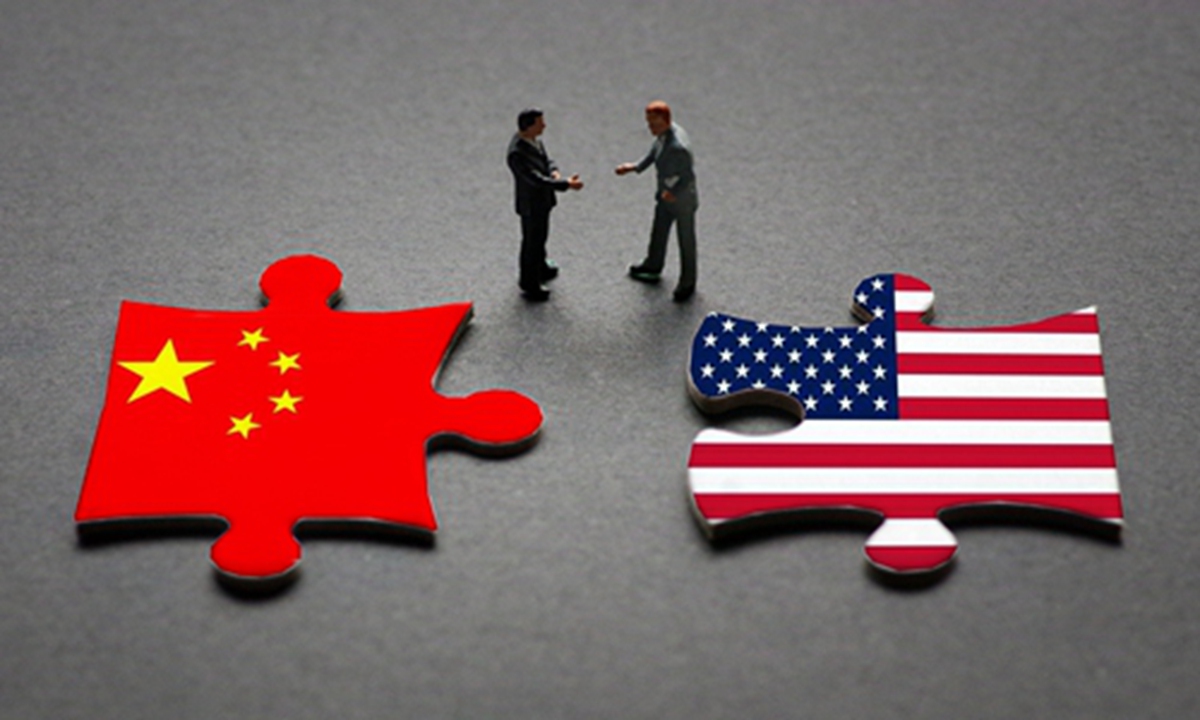
Photo: IC
Chinese State Councilor and Foreign Minister Wang Yi on Saturday spoke with US Secretary of State Antony Blinken on the phone as both sides prepare for a virtual meeting between Chinese President Xi Jinping and US President Joe Biden scheduled for November 16 Beijing Time. The announcements of the foreign ministers' talks issued by China and the US both highlighted the Taiwan question, but there is a huge gap between their views. It is expected that the virtual meeting between the two heads of state will also give an important place to the Taiwan question which will be one of the biggest difficulties of the meeting.
The US noted in recent days that their expectation for the China-US video summit is to "responsibly manage the competition between the United States and the PRC." However, in order to "manage the competition between the US and China", the most critical and urgent is to defuse the explosive question concerning Taiwan, because the Taiwan Straits is the most likely flashpoint to trigger the confrontation between China and the US.
Blinken's call for the Chinese mainland to "engage in meaningful dialogue to resolve cross-Strait issues peacefully and in a manner consistent with the wishes and best interests of the people on Taiwan" is hypocritical cliché and nonsense. After the Democratic Progressive Party (DPP) came to power again in 2016, it immediately abandoned the 1992 Consensus and never mentioned the one-China principle after that. Promoting "Taiwan secession" has become their explicit goal. However, the US did not stop the DPP authority's risky actions, but encouraged them, and then asked the Chinese mainland to adhere to the "peaceful way" to deal with the crisis across the Straits. Does it make any sense?
Yes, the Chinese mainland has been stepping up its preparations for a military conflict across the Taiwan Straits in recent years. Apart from making the Taiwan authorities aware that the risk of war is approaching them, is there any language in the world that can help them understand what they are doing is extremely dangerous?
To stabilize the cross-Straits situation, the only way is to ease confrontation politically and rebuild the political foundation for peaceful coexistence and discussion of the future between the two sides. The US should play a constructive role in changing the extreme path of the DPP authority. Without the minimum level of political mutual trust, can China and the US make it clear by arguing over what should be done across the Taiwan Straits and who bears a larger responsibility? Is there any meaning in such a discussion?
The US has pursued the Indo-Pacific Strategy with the main purpose of containing China, and played the "Taiwan card" against China. The Taiwan authorities have completely inclined to the US, openly claiming that they serve as "the front line of democracy against authoritarianism". The US wants the Chinese mainland to tolerate such authorities on the island. What moral authority do they think they have to persuade China to do so?
The Taiwan question is the ultimate red line of China. In order to reduce the risk of a strategic collision between China and the US, the latter must take a step back from the Taiwan question and show its restraint. The US is targeting China's core interests, causing fundamental tensions in bilateral relations. Washington must understand that it has gone too far, leaving China with no way back. It also needs to see that it is the only one that should take a step back to keep the forces between China and the US at a safe distance.
The US has recently begun to hype the issue of Taiwan's "participation" in the United Nations. It has openly done some salami slicing that could be seen as the US to "restore its military presence in Taiwan." As news about military cooperation between Washington and the island continues to emerge, how come this is only a "competition?" We cannot understand what the US side is doing while at the same time it is preaching about preventing the China-US competition from escalating into conflict. We increasingly feel that trying to figure out Washington's logic is a waste of time, and that force seems to work better than reasoning with the US side.
China is willing to work with the US to reduce the risks in the situation in the Taiwan Straits, but history tells us that the only thing the US really cares about is talks through strength. China will have to fight and have a dialogue with the US at the same time. We hope that the US side will participate in the video summit with some sincerity and it will promote the solution to the problems to ease the highly tense China-US relations, instead of putting the priority on getting tough on China to satisfy such a need in the US society. The whole world is now worried about the further deterioration of China-US relations, and the key to turning the situation around is to change the US' belligerent policy toward China.




